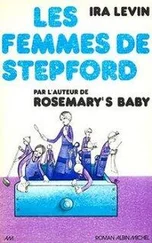On Wednesday morning, the 22nd, Liebermann and Fassler drove together in Fassler’s silver-gray sports car to the federal prison in Düsseldorf where Frieda Maloney had been confined since her extradition from the United States in 1973. Fassler, a stout and well-groomed man in his mid-fifties, was almost as pink-cheeked as usual but—when they identified themselves and signed in—hadn’t yet regained his customary swaggering assurance. Liebermann had told him about the most damaging witness first, hoping that the fear of worse to come would make him, and through him Frieda Maloney, anxious not to give short weight in the interview.
A guard took them up in an elevator and led them along a carpeted corridor where a few guards and matrons sat silently on benches between walnut doors marked with chrome letters. The guard opened a door marked G and showed Fassler and Liebermann into a square beige-walled room with a round conference table and several chairs. Two mesh-curtained windows gave daylight through adjacent walls, one window barred and the other not, which struck Liebermann as odd.
The guard switched on an overhead light, making scarcely a difference in the already light room. He withdrew, closing the door.
They put their hats and briefcases on the shelf of a corner coatrack, and took their coats off and hung them on hangers. Liebermann stood with his arms outstretched and Fassler searched him, looking pugnacious and determined. He felt the pockets of Liebermann’s hanging coat and asked him to open his briefcase. Liebermann sighed but unstrapped it and opened it; showed papers and the Farago book, closed and restrapped it.
He satisfied himself about the windows—the unbarred one gave on a high-walled yard far below; the barred one had black rooftop close beneath—and then he sat down at the table with his back toward the unbarred window; but immediately got up again so he wouldn’t have to rise or not rise when Frieda Maloney came in.
Fassler opened the barred window a bit and stood looking out through it, holding aside the beige mesh curtain.
Liebermann folded his arms and looked at a carafe and paper-wrapped glasses on a tray on the table.
He had reported Frieda Altschul’s record and whereabouts to the German and American authorities in 1967. The record had been in the Center’s files, distilled from conversations and correspondence with dozens of Ravensbrück survivors (the three soon-to-be witnesses among them); the whereabouts had been given him by two more survivors, sisters, who had spotted their former guard at a New York racetrack and followed her to her home. He himself had never met the woman. He didn’t look forward to sitting at the same table with her. Aside from everything else, his middle sister Ida had died at Ravensbrück; it was entirely possible that Frieda Altschul Maloney had had a hand in her death.
He put Ida from his mind; put everything from it except the Rush-Gaddis Agency, and six or more boys who looked alike. A former file clerk at Rush-Gaddis is coming in, he told himself. We’ll sit at this table and talk awhile, and maybe I’ll find out what the hell is going on.
Fassler turned from the window, pushed his cuff back, frowned at his watch.
The door opened and Frieda Maloney came in, in a light-blue uniform dress, her hands in her pockets. A matron smiled over her shoulder and said, “Good morning, Herr Fassler.”
“Good morning,” Fassler said, going forward. “How are you?”
“Fine, thanks,” the matron said. She gave her smile to Liebermann, and covered it with closing door.
Fassler held Frieda Maloney’s shoulder, kissed her cheek, and backed her into the corner, speaking softly. She was gone behind his bigness.
Liebermann cleared his throat and sat down, drew the chair in to the table.
He had seen what photographs had shown: an ordinary-looking middle-aged woman. On the small side, graying hair combed up at the sides, curls on top. Gray-white unhealthy skin, a wide jaw, a disappointed mouth. Eyes that were tired but resolute, a lighter blue than the prison dress. She might have been an overworked chambermaid or waitress. Some day, he thought, I would like to meet a monster who looks like a monster.
He held the table’s thick wood edge and tried to hear what Fassler was saying.
They were coming to the table.
He looked at Frieda Maloney, and she—as Fassler drew back the chair opposite—looked at him, the blue eyes measuring, the thin-lipped mouth down-drawn. She nodded, sitting.
He nodded back.
She flicked a thanking smile toward Fassler, and with her elbows on the chair arms, tapped with the flats of her fingers at the table edge, one hand’s fingers and then the other’s, fairly quickly; then stopped and let them rest there, looking at them.
Liebermann looked at them too.
“It’s now exactly”—Fassler, seated at Liebermann’s right, studied the watch on his raised wrist—“twenty-five of twelve.” He looked at Liebermann.
Liebermann looked at Frieda Maloney.
She looked at him. Her thin eyebrows arched.
He found he couldn’t speak. No breath was in him; only hatred. His heart pounded.
Frieda Maloney sucked at her lower lip, glanced toward Fassler, looked at Liebermann again; said, “I don’t mind talking about the baby business. I made a lot of people very happy. It’s nothing I’m ashamed of.” She had a soft South German accent; easier to listen to than Fassler’s Düsseldorf rasping. “And as far as the Comrades Organization is concerned,” she said contemptuously, “they’re no comrades of mine any more. If they were, I wouldn’t be here, would I? I’d be down in Sowze Amayrica ”—her eyes widened—“living zee good life.” She put a hand above her head and snapped her fingers, swaying her torso in mock-Latin rhythm.
“The best thing, I think,” Fassler said to her, “would be for you to tell everything as you told it to me.” He looked at Liebermann. “And then you can ask whatever questions you want. As time allows. You agree?”
Breath came back. “Yes,” Liebermann said. “Provided time does allow for questions.”
“You aren’t really going to count minutes, are you?” Frieda Maloney asked Fassler.
“I certainly am,” he said. “An agreement is an agreement.” And to Liebermann, “There’ll be enough time, don’t worry.” He looked at Frieda Maloney and nodded.
She folded her hands on the table, looked at Liebermann. “A man from the Organization got in touch with me,” she said. “In 1960, in the spring. An uncle of mine in Argentina told them about me. He’s dead now. They wanted me to get a job with an adoption agency. Alois—the man, that is—had a list of three or four of them. Any one would be all right as long as it was a job where I could look at the files. ‘Alois’ was the only name he ever gave me, no last name. Over seventy, white-haired; an old-soldier-type with very straight posture.” Her eyes questioned Liebermann.
He gave no response, and she sat back in her chair and examined her fingernails. “I went to all the places,” she said. “There were no openings. But after the summer Rush-Gaddis called me in, and they hired me. As a file clerk.” She smiled musingly. “My husband thought I was crazy, taking a job in Manhattan. I was working then at a high school only eleven blocks from home. I told him that they promised me at Rush-Gaddis that in a—”
“Just the essentials, yes?” Fassler said.
Frieda Maloney frowned, nodded. “So. Rush-Gaddis.” She looked at Liebermann. “What I did there was go through the mail and the files looking for applications where the husband was born between 1908 and 1912 and the wife between 1931 and 1935. The husband had to have a job in the civil service, and both of them had to be white Christians with a Nordic background. This was what Alois told me. Whenever I found one, and that was only once or twice a month, I copied it on the machine there along with all the letters between the couple and Rush-Gaddis. These were only people who hadn’t been given babies, of course. Two sets I made, one for Alois and one for me. The ones for him I mailed to a box-number he gave me.”
Читать дальше











